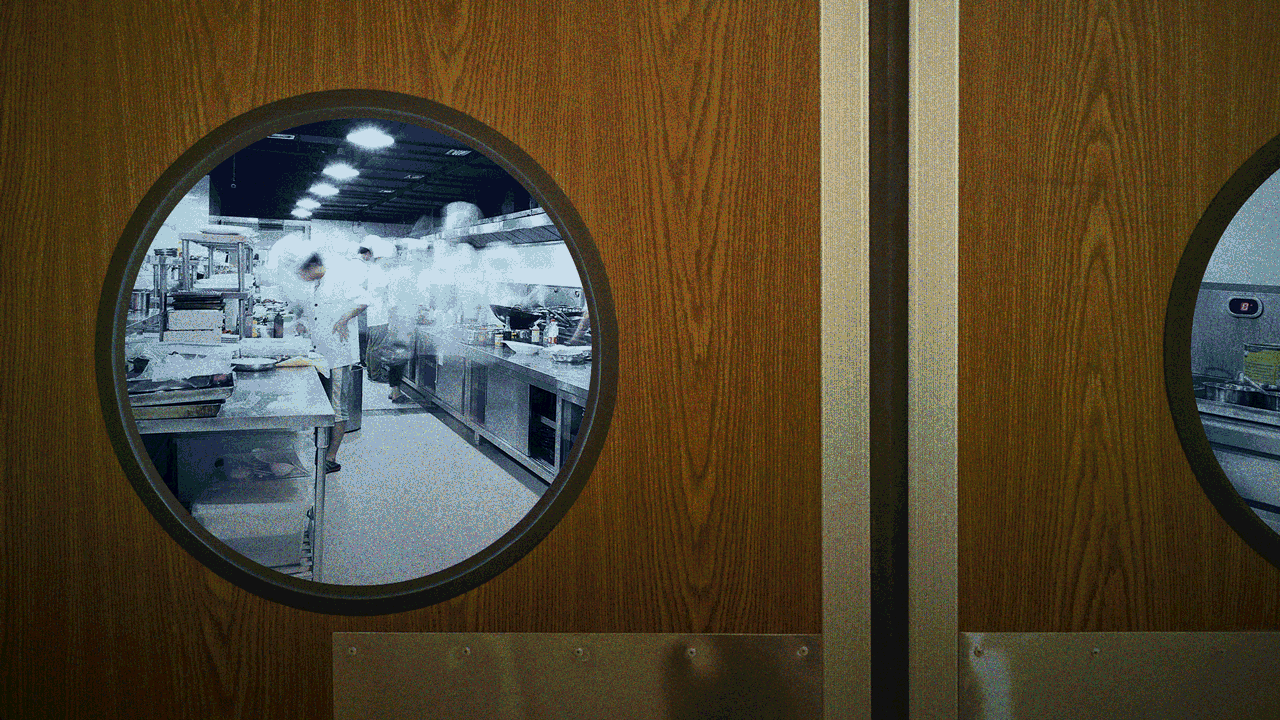Ghost Kitchens Are Evolving
These phantom operations aren’t so ghostly anymore.
Since 2020, we've all gained much more familiarity with the concept of ghost kitchens, restaurants with no dining room that operate out of a shared kitchen space and offer only delivery via apps such as DoorDash and Grubhub. Now, though, many ghost kitchens are trying to become more customer-facing, some even hoping to abandon the term "ghost kitchen" altogether, reports Nation's Restaurant News.
Ghost kitchens, explained
In addition to heightening our awareness of everyone's personal space, the pandemic brought with it the spread of zero-dining-room restaurants, and brands of all kinds built these concepts into their model: Famous Dave's, Chuck E. Cheese's, and Wendy's all operate as ghost kitchens, while some sit-down restaurants use their kitchens to spin off additional virtual-only brands such as Cosmic Wings (Applebee's) and Hootie's Burger Bar (Hooter's). No seating, no branding, no front-of-house staff—just a name and a menu on a delivery app.
The lack of human interaction that comes with ordering food from a ghost kitchen perfectly fit the demands of consumers during the pandemic. Ghost kitchens were so successful, in fact, that we saw many celebrities tack their names onto the trend including Mariah Carey, Tyga, YouTuber Mr.Beast, and Guy Fieri.
However, a celeb name does not guarantee A-list quality, nor does it mean these concepts had much to do with the aforementioned famous person beyond their endorsement. Case in point: Mariah Carey's Cookies, which received a mixed bag of reviews depending on where customers picked them up.
Despite some of their downsides (variable quality, a lack of transparency), ghost kitchens did not fail immediately following our return to in-person dining. They've hung on, and now the industry is figuring out how to adapt them to our changing needs.
How ghost kitchens are adapting to the times
Although many of the ghost kitchens that started during the pandemic are still up and running, virtual restaurant companies are now looking to adopt a more hybrid model of operation that involves some customer interaction while remaining takeout-based, reports Nation's Restaurant News.
"It's much more joyful and hospitable that way instead of walking into the back of a spooky warehouse," Markus Pinyero, co-founder of Oomi Digital Kitchen, told Nation's Restaurant News of the brand's upcoming virtual food hall in Dallas. "We're very open and brand-centric." The food hall still allows customers to order their meal online, but they come and pick their order from a locker in person.
Oomi has a number of licensed brands including Which Wich, Urban Taco, Flyrite, Hot Lips, and Bowlrito, but the company hires culinary staff in-house and does not franchise or license out operations in order to maintain quality control. Similarly, other ghost kitchen companies such as Meal Outpost and Reef are shifting focus to a multi-brand food hall design. So it seems that the path forward for these virtual kitchens is via smaller, proprietary brands and not major fast food chains.
Meal Outpost's model makes it so that restaurants can use their existing kitchen and staff to serve as a "host restaurant" for one of the company's other brands. One of the company's co-founders, Dustin Mares, likens it to Airbnb in that once the host selects the brand that best suits them, Meal Outpost guides them through the remaining steps, sends training videos, and schedules a launch date.
Originally, Reef attempted to execute this multi-brand strategy with major chains like Burger King and Jack in the Box, but those larger brands were less willing to share, preferring more control over the virtual kitchens and to operate exclusively out of a given location.
We probably could have seen this shift coming. Yes, there are days when having the option to stay in bed and never utter a single word to another human being sounds fantastic. But we are all human, and human contact becomes necessary in a time of increased isolation; couple that with our desire for a menu of convenient options, and the pivot to a multi-brand model makes sense to appeal to the vast majority of consumers. I don't mind ghost kitchens becoming a little less warehouse and a little more food hall, and I know I'm far from the only one.
